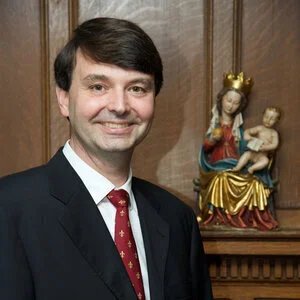The Uniform Law Commission is currently considering recommending a revision of the Uniform Determination of Death Act (UDDA) that would allow physicians to declare those who are in a permanent coma legally dead. This would be a travesty of law and common sense because, by definition, a coma indicates that one has brain activity and is still a living person.
Read MoreMany people struggle with the ethical discernment surrounding the decision to have a Do Not Resuscitate Order (DNR) put into place for themselves or a loved one. The DNR is a specific medical order. “It instructs health care providers not to do cardiopulmonary resuscitation (CPR) if a patient's breathing stops or if the patient's heart stops beating.” There are circumstances where faithful Catholic bioethicists agree that a DNR can be moral and others where it is not.
Read MoreWatching a loved one suffer and die is painful beyond words. And that pain often clouds judgment, leading to confusion and doubt about what medical interventions are truly the most caring and appropriate. For 45 years I have been associated with The National Catholic Bioethics Center and have taught moral theology in two seminaries. I have given talks on care at the end of life, on advanced medical directives, and on a Power of Attorney for Health Care Decisions when a patient becomes incompetent. Over the years, I also counseled individuals having to make difficult health care decisions. None of that, however, even begins to have the existential relevance when it is one’s own loved one who is suffering and dying.
Read MoreEach and every person’s moment of death is of the highest significance. The Church has always focused with the greatest zeal on bringing the sacraments and every kind of spiritual support possible to the dying. That was the background for the Ars Moriendi, or The Art of Dying book, composed in the late Middle Ages, probably by a Dominican friar.
Read MoreThe time of greatest significance in our entire existence is the instant of our death. How our souls are disposed at that moment determines our eternal destiny. If we are oriented to God and reject sin, we are on the path to salvation.
Read MoreThe largest number of consultations we receive at The National Catholic Bioethics Center deal with end-of-life decisions. Sometimes people even call after the death of loved ones to ask if they made the right decisions on their behalf. They want to be reassured that they did the most loving things they could have for them. In cherishing the memory of loved ones, it is striking how often their last words are mentioned.
Read MoreAs the historic COVID-19 pandemic is intensifying worldwide and draconian emergency measures are being reinstituted in Europe and elsewhere, I see an urgent need to repeat a defense of the right of patients not to be forced to die alone in hospitals or nursing homes.
Read MoreOne of the most important tasks in bioethics is distinguishing between ordinary and extraordinary means when it comes to medical care. The reason this distinction is so vital is that Catholics have a moral obligation to receive ordinary care for themselves and give it to others. What is deemed to be extraordinary is morally optional; persons can choose if they do or do not want to receive such care.
Read MoreCatholics, like all other citizens of the United States of America, have a duty to participate in our representative form of government by informing themselves about the issues and stances of candidates and then voting.
Read MoreThe Congregation for the Doctrine of the Faith (CDF) recently issued a letter, Samaritanus bonus: on the care of persons in the critical and terminal phases of life. This document from the Church provides important guidance about the Catholic view of end of life care. It notes with regret that we live in an age when euthanasia and assisted suicide are growing threats and temptations to people all over the world.
Read MoreThe difference between the Catholic perspective on the dignity and rights of human persons and those of many secular and liberal thinkers seems to be widening. The COVID-19 pandemic and recent events have only served to make the contrast even more stark between truly Catholic health care and other visions of public health or medicine.
Read MoreThe National Catholic Bioethics Center (NCBC) exists to promote and defend God’s plan for creation and the dignity of the human person as championed by the Catholic Church. It is an exciting and a vital mission in our day when so many scientific discoveries and cultural trends attack and exploit vulnerable human beings and the very order of nature.
Read MoreThe world needs education about bioethics because most people still do not know what a bioethicist does. Even some health care professionals have only vague ideas about it.
Read MoreAn interview with Joseph Meaney published in Crux on March 25, 2020.
Read More




